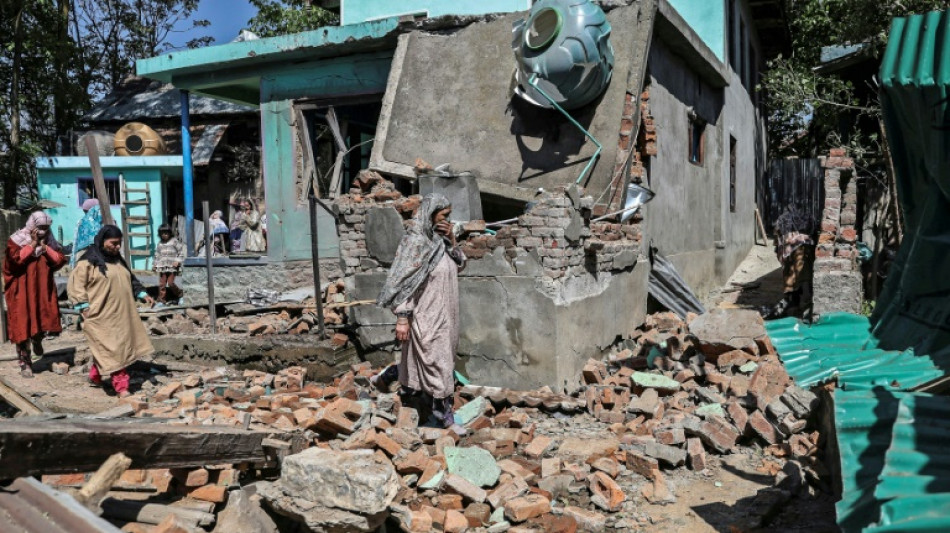

Anger in Indian Kashmir at demolitions and detentions
Indian soldiers have blown up nine homes of suspected rebels in Kashmir and detained nearly 2,000 people since a deadly attack last week, sparking public anger and accusations of "collective punishment".
The demolitions, which left nine families homeless, began a day after the April 22 attack targeting the tourist hotspot of Pahalgam, in which 26 men were killed.
India has named two Pakistani citizens among the alleged attackers and accused Pakistan of supporting "cross-border terrorism", claims that Islamabad rejects.
But India is also hunting several of its own citizens in connection to the killings, the worst attack on civilians in contested Kashmir for a quarter of a century.
Police have launched a vast manhunt and detained a long list of suspects for questioning, including nearly 2,000 residents across the territory, a senior police official told AFP.
"It's a revolving door in police stations as part of the ongoing investigation," the officer said, speaking on condition of anonymity because they were not authorised to talk to media.
"Some have already been let go, and more are being summoned to police stations," the officer added.
"These are not arrests, just for seeking information that could lead to the terrorists."
Muslim-majority Kashmir has been divided between India and Pakistan since their independence from British rule in 1947. Both claim the territory in full.
Rebels in the Indian-run area have waged an insurgency since 1989, seeking independence or a merger with Pakistan.
Indian police have issued wanted posters for three men -- two Pakistanis and an Indian -- who they say are members of the Pakistan-based Lashkar-e-Taiba group, a UN-designated terrorist organisation.
They have announced a two million rupee ($23,500) bounty for information leading to each man's arrest.
Homes of men suspected of having links to the attackers have also been blown up at night.
Small groups have protested the Pahalgam attack, but the crackdown has also sparked warnings that the wider public is suffering during the search for the few.
"Punish the guilty, show them no mercy but don't let innocent people become collateral damage," Jammu and Kashmir's Chief Minister Omar Abdullah said in a statement.
Aga Ruhullah, a federal lawmaker from Kashmir, said "Kashmir and Kashmiris are being given a collective punishment".
Yasmeena, the sister of fugitive accused Ashif Sheikh, said her family was being punished with their home demolished even though they had not seen her brother for three years.
"If my brother is involved, how is it the family's sin?" she asked.
"This house doesn't belong to him alone."
I.Barone--IM



